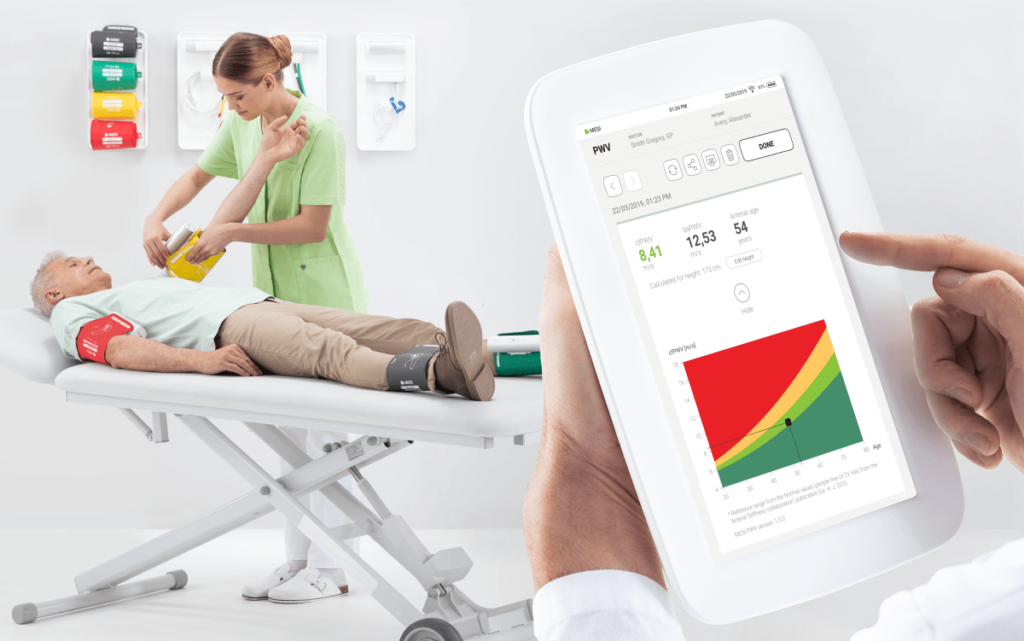👨⚕️👩⚕️ Did you know that pulse wave velocity (PWV) can provide crucial insights into cardiovascular health? PWV is used for evaluating arterial stiffness, an important independent predictor of cardiovascular disease.
At MESI, we have prepared a short article that explains what #PWV is, why it is essential, how to measure it and how to easily make it part of arterial assessment at primary care level
What is pulse wave velocity and why is it important

Arterial pulse wave velocity (PWV) is the speed at which the pulse wave travels through the arterial system. It is recognised as the gold standard for evaluating the stiffness of the arteries in clinical practice. This is essential because arterial stiffness is regarded as an important independent predictor of cardiovascular disease. [1] In this article, we will take a look at what PWV is, why it is important and how to measure it.
Arterial stiffness is an independent predictor of cardiovascular morbidity and mortality. It is a risk factor for various cardiovascular complications or events; this makes it a cause for concern. Consequently, measurement of pulse wave velocity is essential and should become part of clinical routine, e.g. like cholesterol measurement. It namely shows the total impact of various types of damage to the arterial wall. PWV is considered as an integrative biomarker: it reflects the combined influence of multiple factors on arterial health and function.






